A project carried out by members of the Africa team of Engineers Without Borders Israel - Tel Aviv contributes to the supply of clean drinking water to rural areas in Africa, and has been operating continuously since 2013 in the Babati district in northern Tanzania. The project provides water to approximately 5,000 children
The Africa team, Engineers Without Borders Israel - Tel Aviv, returned about three weeks ago from a 20-day mission in Tanzania. The project they promote contributes to the supply of clean drinking water to rural areas in Africa, and has been operating continuously since 2013 in the Babati district of northern Tanzania. As reported in April, The water systems provide water for 5,000 children. The current delegation left in the background of the severe drought that has afflicted the country in the past year, which is causing a water crisis and severe hunger in the country.
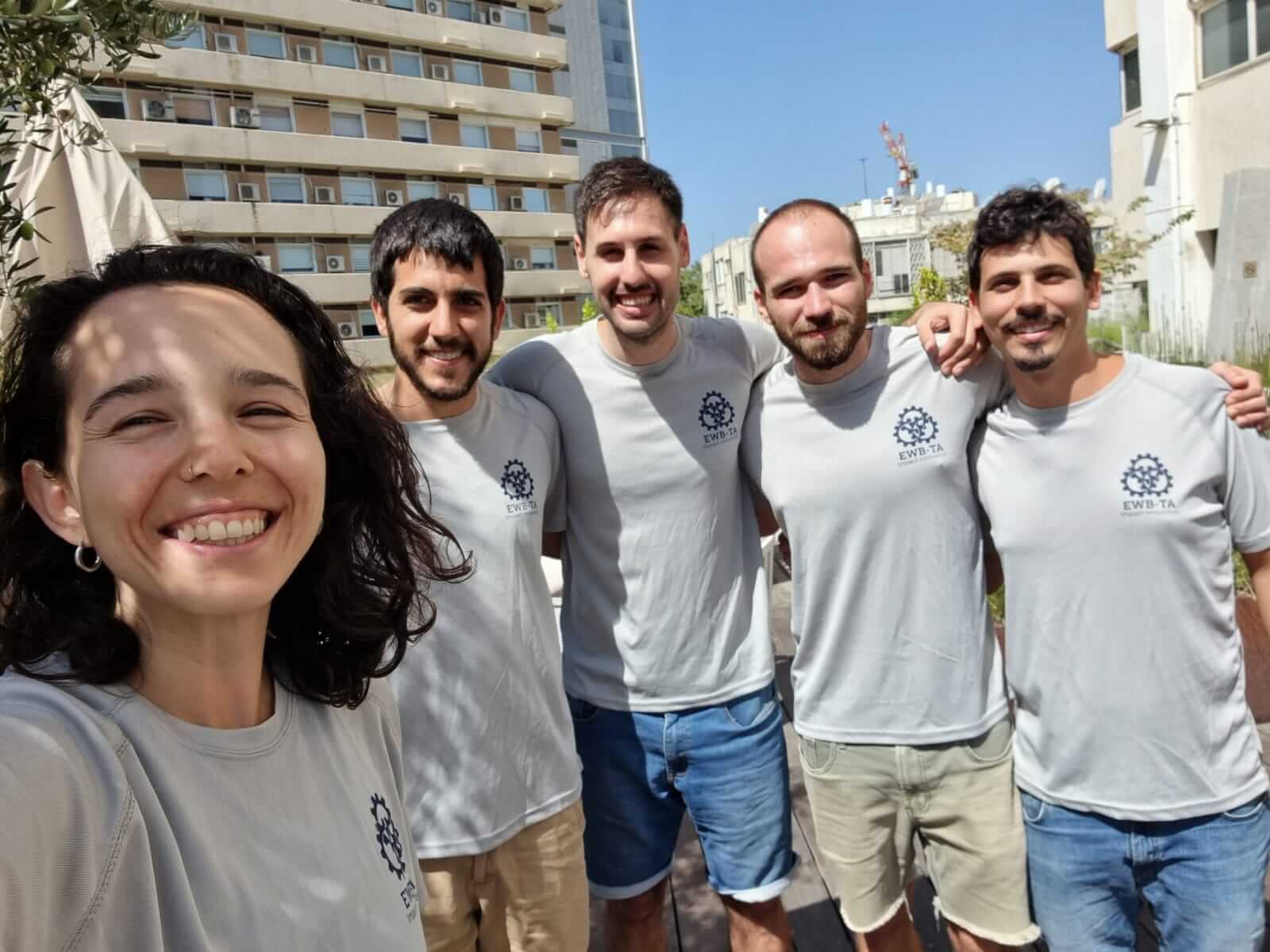
The five members of the delegation, Aviv Avinoam, Yaeli Banovitz, Dan Komisarchik, Sharon and Berkowitz, and Ofir Inbar say: "During the delegation we made upgrades and repairs to our water systems which now provide water to 5000 children, we conducted several pilots for water purification systems, we built collaborations with Other organizations that work in Babati district, and together with the local team, we delivered an extensive educational program on water and sanitation issues. In addition, we conducted joint tours together with the water authorities in the new water laboratory in the area that will perform water tests for us, and in new areas where we would like to develop."
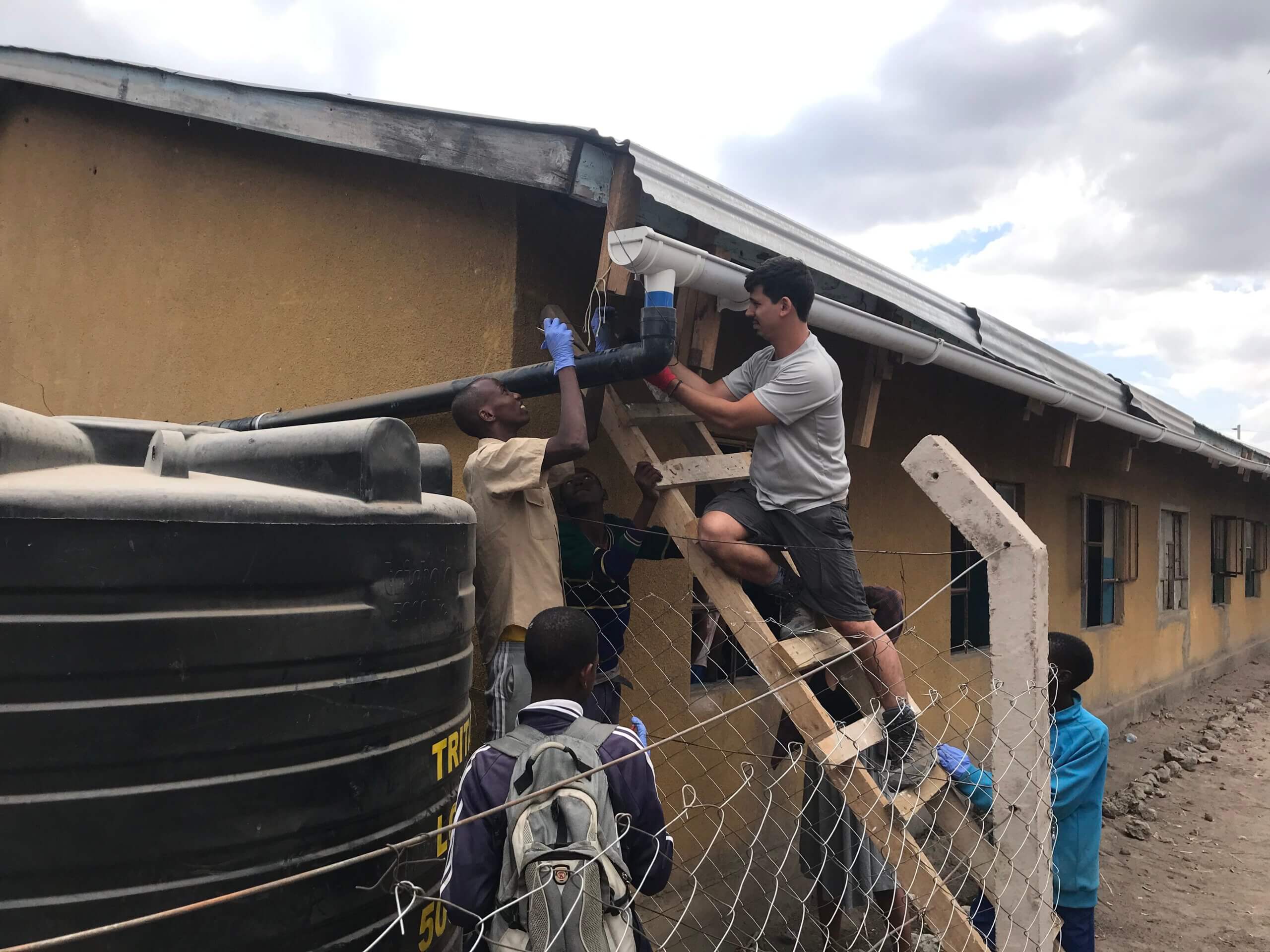
According to Dan, in Babati district there is a big gap in accurate meteorological data. Therefore, the team together with the local community installed the first automatic meteorological station in the area. The station continuously measures parameters such as rain, wind, humidity, and temperature. The information will be transmitted directly to the water authorities, local farmers, and other organizations operating in the area. This data will of course help the team in planning future water systems.
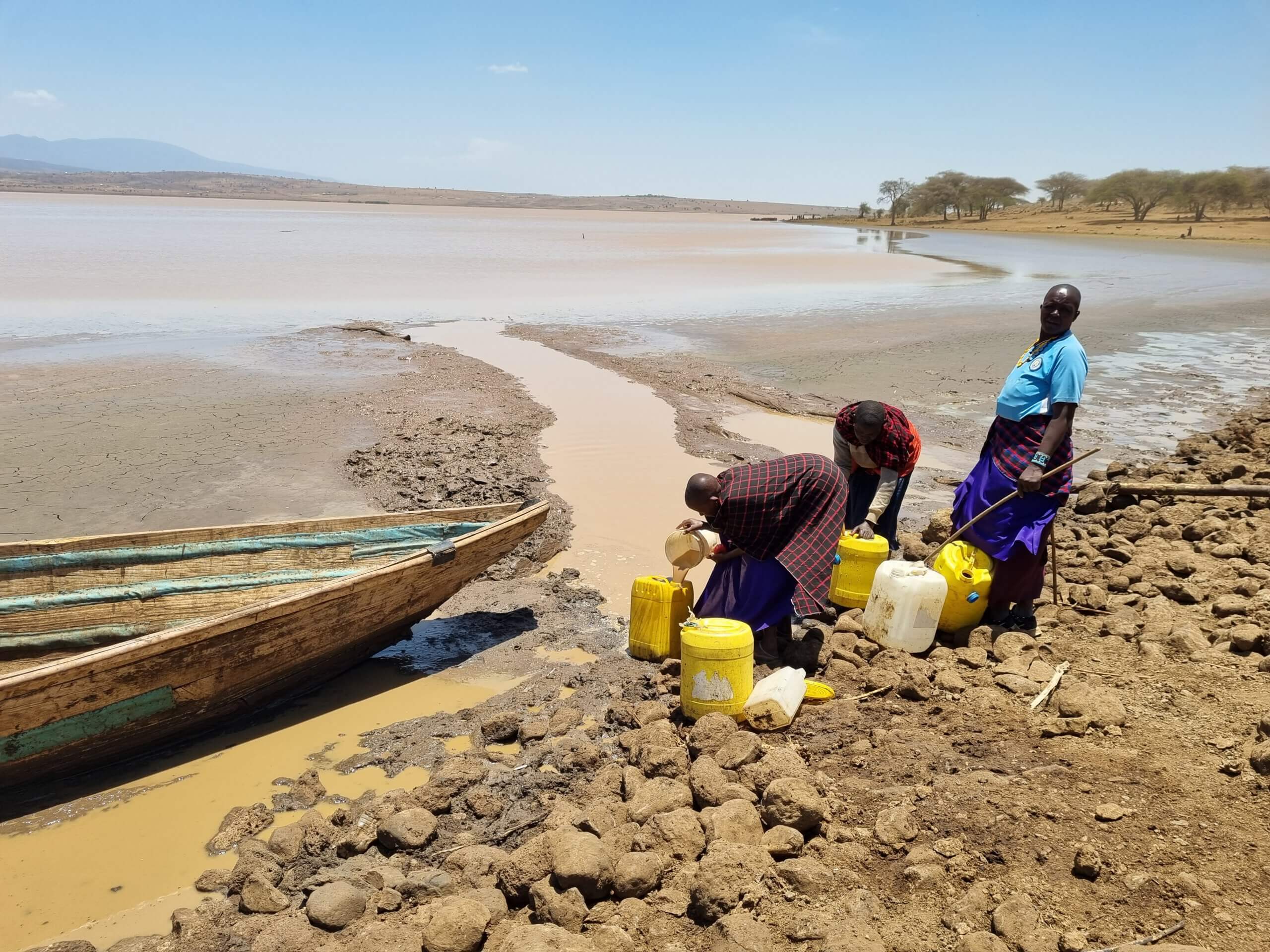
One of the most significant days in the delegation was the first "managers seminar" of its kind. Aviv explains: "Experience shows that the manager is the function that determines whether the system will function and be well maintained. The purpose of the seminar was to empower this group, to encourage mutual fertilization regarding the use of the systems, and to hear in an orderly manner insights and improvements that we must make. Very interesting points came up during the seminar, and it was decided, together with the regional education directorate, that it will be held once a year."
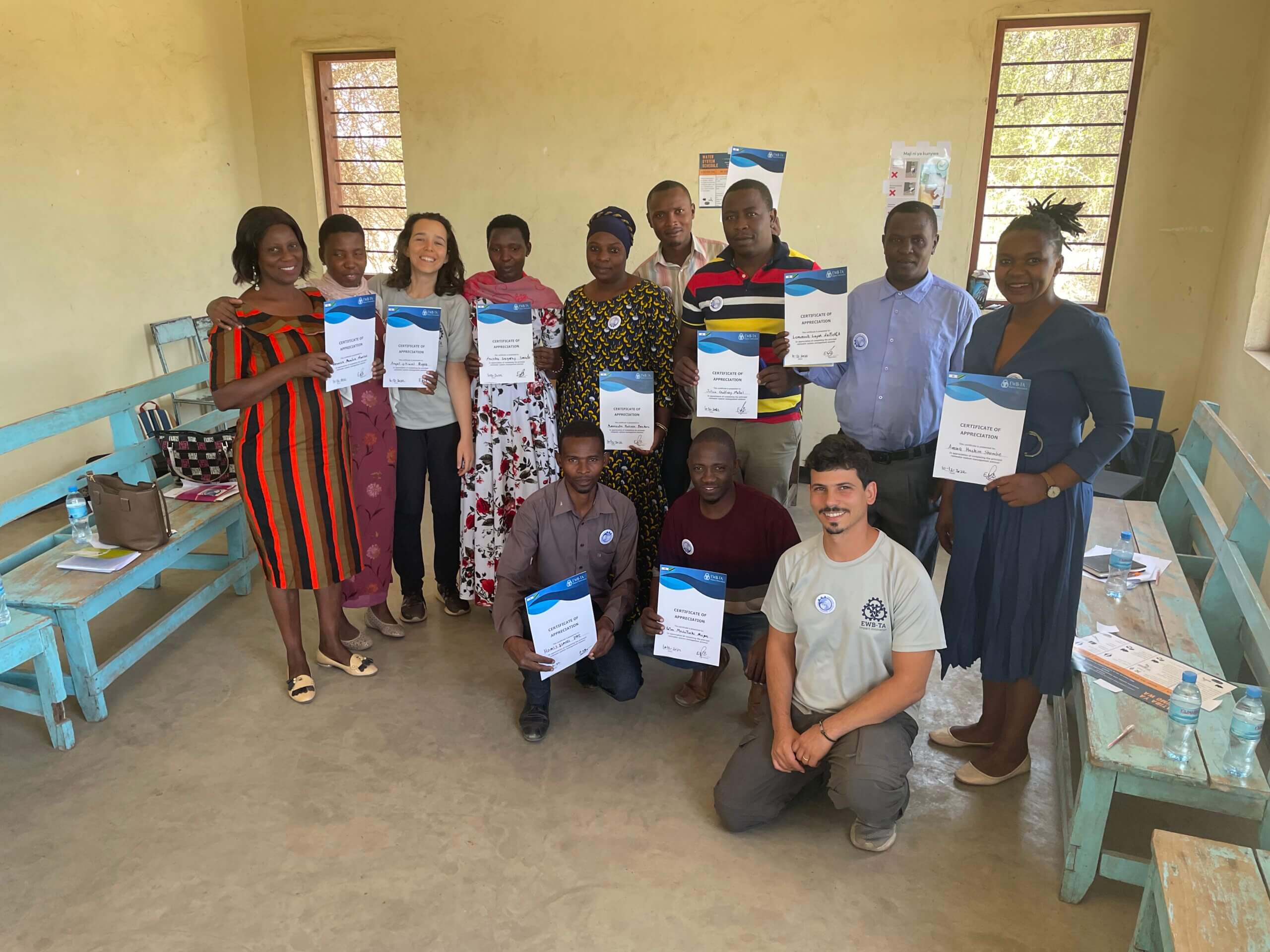
In the last year, the team began to conduct a comprehensive academic study to examine the impact of the water systems we built over the years on the local community in aspects of health, nutrition, entrepreneurship and more. The research is led by team member Yaeli Benovich, who is writing a thesis on the subject under the guidance of Prof. Dror Avisher, head of the Water Research Center at Tel Aviv University, and Dr. Shira Bookchin, a researcher of interdisciplinary aspects of sustainable development in the developing world from the Hebrew University. As part of the research, hundreds of students and educators answered questionnaires aimed at making sure that there is no harm in the activities of Engineers Without Borders. And on the contrary - to verify that the water project does benefit the community.. This research adds a professional academic dimension to the work and helps to examine the impact of the systems in a broad perspective.
Make sure that the project does not become a white elephant
In our opinion, getting to the schools and building the water systems is only half the job, emphasizes Yaeli. A great many projects in Africa are quickly becoming white elephants. A foreign organization comes, pours money and goes home. A short time later - the project was abandoned and goes out of use. "We want to avoid this, so it is important to us that the authorities and the community be part of the planning and construction of the systems from an early stage. More than that, we want it to be clear that the community is the one responsible for the project. In recent years, we have held dozens of meetings with the authorities in the region, from the level of the village leaders, through the heads of the district to members of parliament. In addition, a close relationship was built with the local water authorities. The representatives of the local community and we work together following a contract we signed, a memorandum of understanding (MOU), which clearly states the role of each party for the success of the project. The document contains all the actions that the EWB team must perform, and all the actions that will be performed by the authorities and the local community - before, during, and after the construction of the system. The agreement was signed in April 2022 in front of the head of the district. After the arrangement of responsibility for the project and the signing of the agreement, the attitude of the authorities and the community towards the project improved. There is no doubt that this is the right way to work, this is a necessary step that will help the community maintain the project for years to come."
Ofir emphasizes that in projects of this type the presence in the field is critical. "Only when you get to the projects and meet face to face with the people do you understand what is happening, who is against who, what the challenges are, and where we need to move forward. An intimate and open relationship is built when sitting and talking at eye level. It is very difficult to bridge the gaps in Zoom calls or messages, but when you sit and talk everything seems much simpler.
When you get to the field, opportunities emerge. Suddenly, organizations or other key factors meet. From this it is possible to create collaborations. From each meeting the team leaves with insights, a better understanding of the community and new ideas.
This is the only way to understand the challenges facing the local community, both in the technical and operational aspects of the system. Sometimes the challenges are different in relation to our hypotheses."
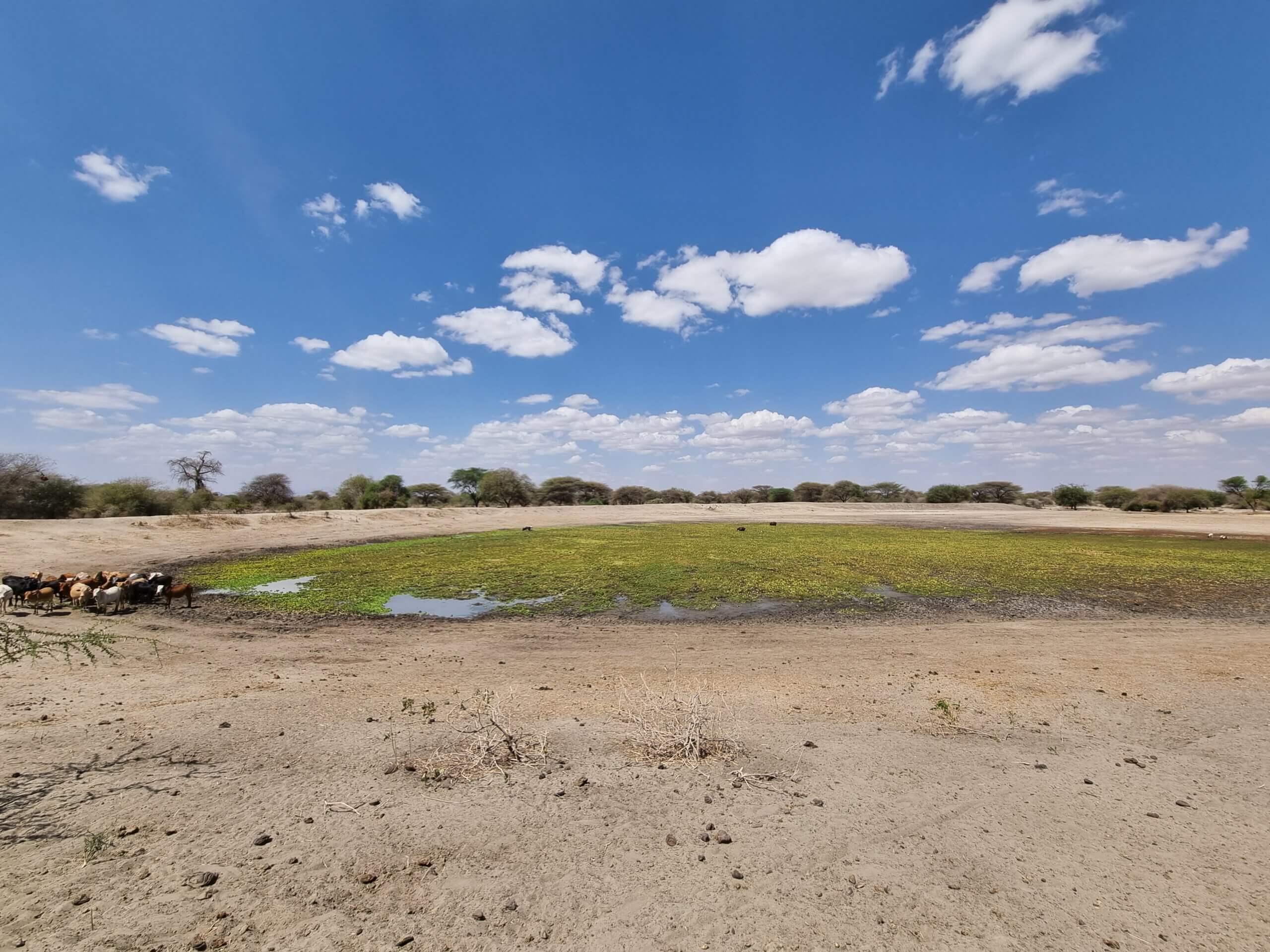
The team relies on fundraising from companies, businessmen, philanthropic foundations, the Israeli Embassy in Kenya (which is responsible for Tanzania), and Tel Aviv University. Dan: "The water project in Tanzania illustrates the change that can be made when you form such a close relationship with the local community. The activity is in its infancy. In order to meet our goals, 10 new volunteers were recruited to the team a few weeks ago. It should be noted that more than 120 requests to join were received, and we chose the best and most suitable ones. The team is in the midst of raising a significant amount of money for the upcoming expeditions. In these expeditions, the team plans to build upgraded water systems in several areas of the district and carry out a variety of other educational projects. We invite companies and people who are interested in donating and being partners in the project to contact us."
- Linktr: https://linktr.ee/EWB_TA
- Website: ewbta.com
- LinkedIn: www.linkedin.com/company/afria-engineers-without-borders-tel-aviv
